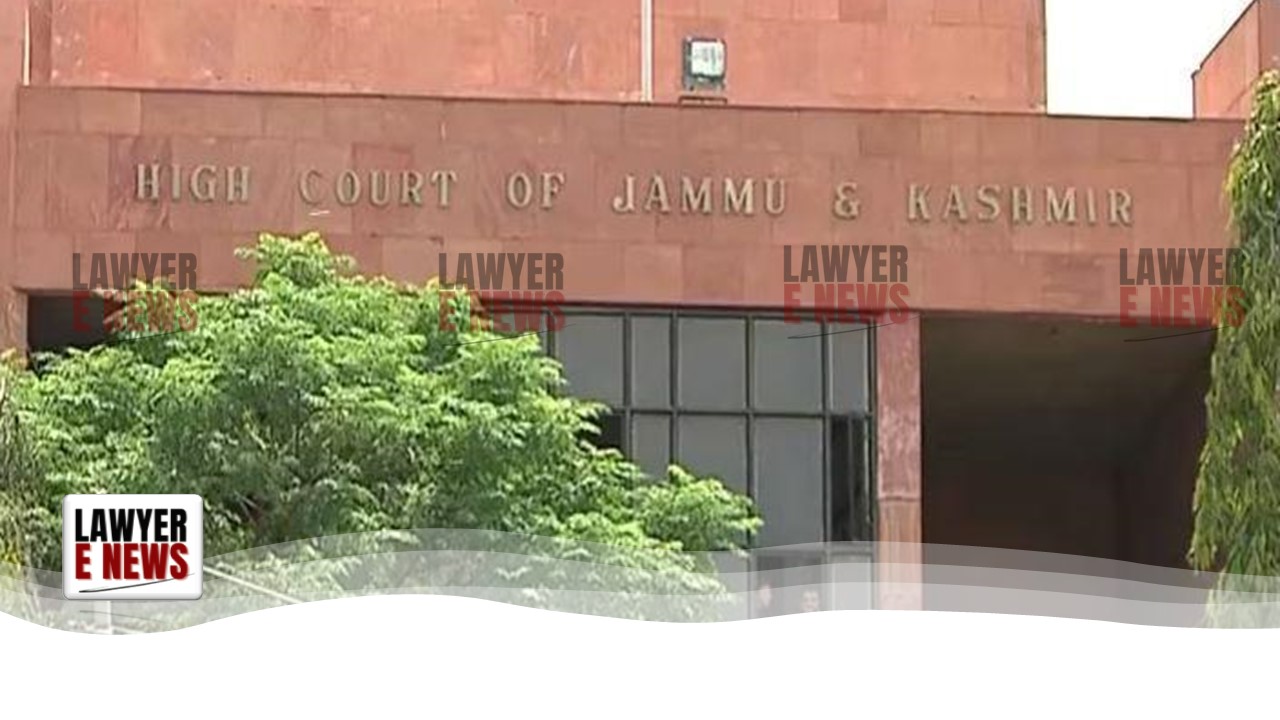-
by Admin
15 February 2026 5:35 AM



In a recent judgment High Court of Jammu & Kashmir and Ladakh, Justice Moksha Khajuria Kazmi, quashed a preventive detention order issued against Miyan Muzaffar under Section 8 of the Jammu & Kashmir Public Safety Act (PSA), 1978. The Court found significant procedural lapses, lack of material evidence, and violations of constitutional safeguards, ordering the immediate release of the detenue.
The case involved a habeas corpus petition filed by the detenue's wife, challenging the detention order dated July 13, 2024, issued by the District Magistrate, Srinagar. Muzaffar, an advocate by profession, was detained for allegedly indulging in activities prejudicial to the security of the state. He was lodged at District Jail, Kathua, following his arrest.
The Court underscored the necessity of subjective satisfaction for issuing a detention order and found it lacking in this case:
"The detaining authority has not applied its mind to the relevant circumstances. The grounds of detention are vague, illusory, and based on extraneous material."
The Court highlighted the absence of a live and proximate link between Muzaffar’s alleged activities and the necessity for preventive detention. Allegations, such as his professional interactions with Mian Abdul Qayoom and participation in seminars, were deemed insufficient and speculative.
Referring to Article 22(5) of the Constitution, the Court emphasized the detenue's right to make a representation against the detention order. It noted:
"The failure to supply relevant material, despite requests by the detenue’s family, rendered the opportunity to make a representation illusory."
The Court relied on Jaseela Shaji v. Union of India (2024), which mandates that all material relied upon by the detaining authority must be furnished to the detenue for procedural fairness.
The Court criticized the grounds of detention for their lack of specificity, stating:
"Allegations such as organizing seminars with deceased or imprisoned individuals and promoting secessionist ideologies are vague, unsubstantiated, and depict non-application of mind."
The Court found that the Advisory Board failed to perform its duty of independent review:
"The Advisory Board is not a rubber-stamping authority. It must play an active role in scrutinizing detention orders for compliance with constitutional and statutory requirements."
The detenue’s chronic health condition, including mild Ileitis Crohn's Disease, was disregarded by the authorities, amounting to a violation of his fundamental rights under Article 21.
The judgment stressed: "Preventive detention is an extraordinary measure. If the ordinary laws of the land suffice, preventive detention becomes unconstitutional."
The High Court quashed the detention order, declaring it unconstitutional and in violation of procedural safeguards. It ordered:
"The detenue, Miyan Muzaffar, is to be released forthwith unless required in any other case."
This judgment reinforces the judiciary's role as the guardian of fundamental rights against arbitrary executive actions. It sends a strong message that preventive detention cannot be used as a substitute for criminal prosecution or as a tool for stifling dissent.
Date of Decision: January 3, 2025
